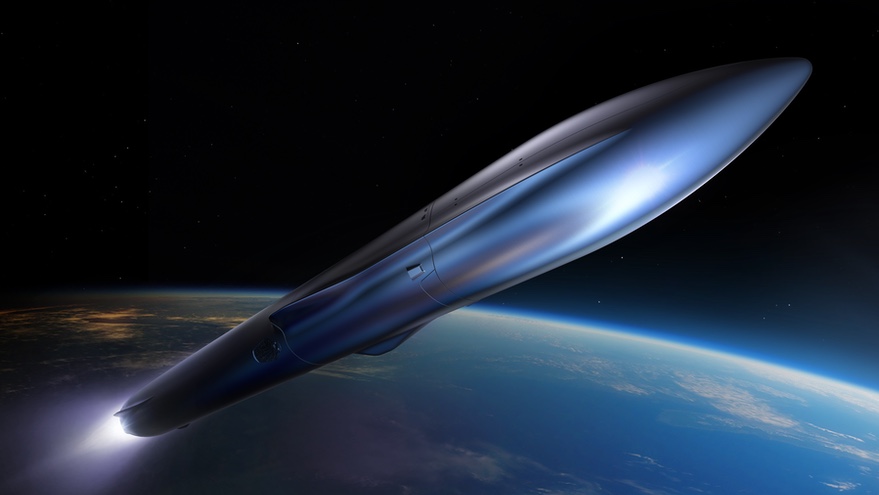WASHINGTON — OneWeb will launch some of its next-generation satellites on Relativity Space’s next-generation launch vehicle starting as soon as 2025, the companies announced June 30.
Relativity Space announced that OneWeb signed a launch services agreement for multiple launches of OneWeb Gen 2 satellites on Relativity’s Terran R reusable launch vehicle under development. The companies declined to disclose details about the agreement, including the value of the contract and the number of launches included.
OneWeb has disclosed few details about the planned Gen 2 constellation, although it is expected to feature far more satellites than the current generation of 648 satellites the company is deploying. Those future satellites will likely offer additional communications services and could also carry navigation payloads.
The lack of details extends to the size of the satellites themselves. The companies declined to disclose how many satellites would fit on a Terran R, a rocket with a projected payload capacity in the same class as SpaceX’s Falcon 9.
OneWeb is the first customer that Relativity has announced for the Terran R but the fifth overall. Tim Ellis, chief executive of Relativity, said in a written response to questions that the other four undisclosed customers are “are top satellite operators we are extremely excited about having on our manifest.”
Ellis said that, among all customers, Relativity has orders for more than 20 Terran R launches, with a backlog the company valued at more than $1.2 billion. “The OneWeb agreement represents a large anchor customer with other significant customer agreements making up the total announced today,” he said. The other four customers each signed multi-launch agreements.
Relativity announced the Terran R in June 2021 at the same time it disclosed a $650 million funding round. Terran R will be constructed using 3D-printing technologies the company has been working on since its inception. Both stages and its payload fairing will be reusable.
The company is nearing the first launch of its smaller Terran 1 rocket. The vehicle is undergoing testing at Launch Complex 16 at Cape Canaveral Space Force Station ahead of a launch projected for later this summer. That mission, called “Good Luck, Have Fun” by the company, will not carry a payload.
OneWeb, meanwhile, is preparing to resume launches of its first-generation constellation that were paused when Russia’s invasion of Ukraine in February led the company to halt use of Soyuz vehicles. A OneWeb executive said June 23 that it expects launches to resume in the fourth quarter using SpaceX’s Falcon 9 and India’s Geosynchronous Satellite Launch Vehicle (GSLV) Mark 3.
S Somanath, chairman of the Indian space agency ISRO, told reporters June 30 that two GSLV Mark 3 launches of OneWeb satellites are currently on the agency’s manifest, one for mid-September to October of this year and the other by January 2023.
